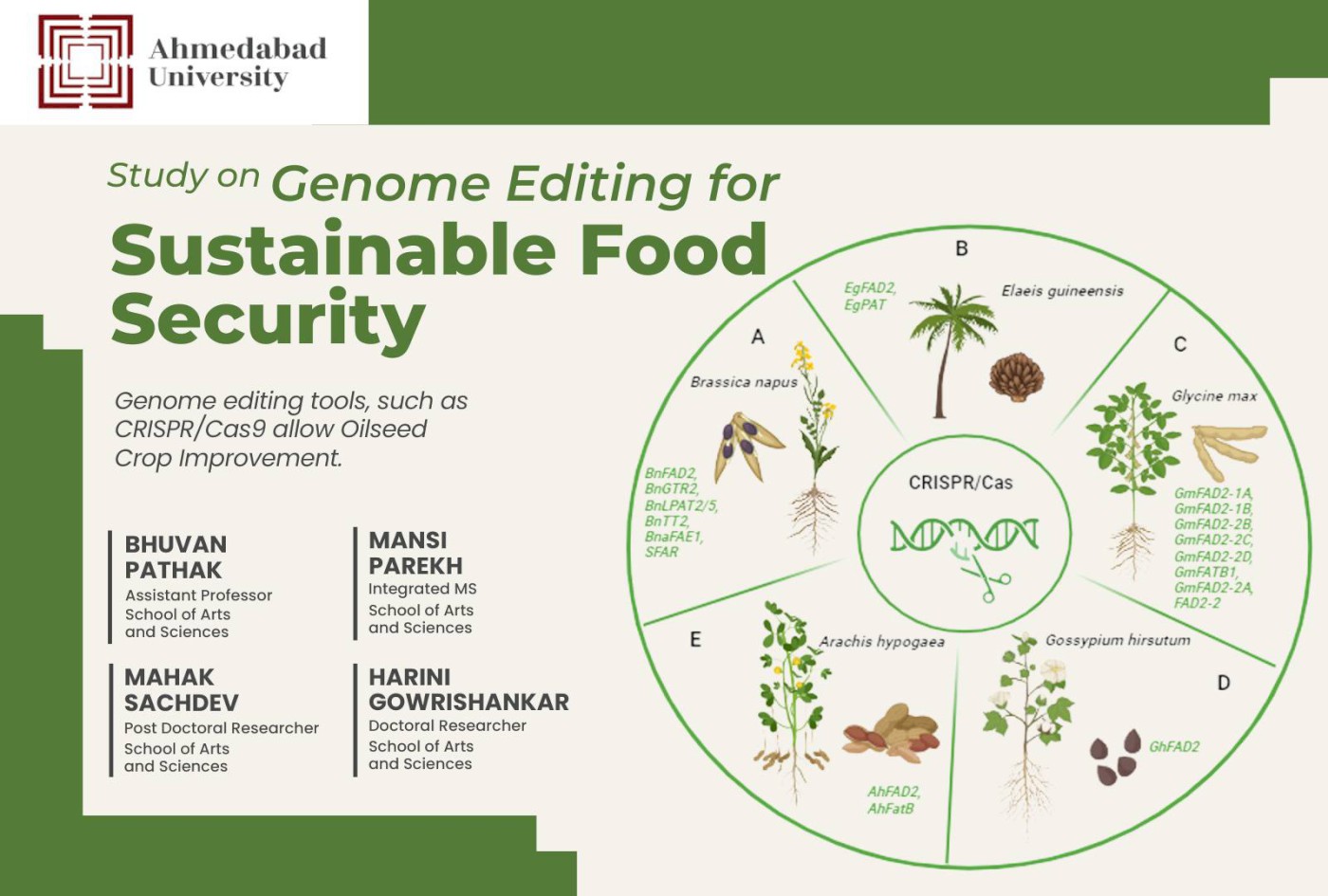20 January 2025
Study on Genome Editing for Sustainable Food Security

The application of genome editing techniques is gaining interest within the research community due to their ability to address challenges in oilseed crop improvement. This is attributed to its potential to aid in developing resilient and nutritious varieties, essential for sustainable food security in the context of climate change.
Plant-based oils provide calories and essential fatty acids (omega-6 and omega-3) that our bodies need. While traditional breeding has significantly increased yields, growth has stagnated due to biotic and abiotic stresses and shifting agro climates.
A recent paper builds a compelling case, showcasing how advances in genome editing tools, such as CRISPR/Cas9, allow scientists to make specific changes to a plant's DNA, improving its oil's nutritional value and chemical composition.
Professor Bhuvan Pathak, Mahak Sachdev, Mansi Parekh, and Harini Gowrishankar from the Plant Biology Lab at the School of Arts and Sciences at Ahmedabad University co-authored the paper with researchers from IIT Gandhinagar and the University of Florida. Titled "Transcriptional engineering for value enhancement of oilseed crops: a forward perspective," and published in Frontiers in Genome Editing, the authors discussed how genome editing technologies, particularly CRISPR-Cas systems, can be utilised to enhance oilseed crops by targeting specific genes.
Genome editing can develop crop varieties that withstand environmental stresses, which are becoming more prevalent due to climate change. It can also modify metabolic pathways to produce healthier oil products. The study also explored creating varieties with higher seed yield and biomass, contributing to greater overall productivity.
Enhanced genome editing in oilseeds requires integrating multi-omics data, developing efficient delivery systems, and addressing regulatory and ethical considerations for successful agricultural adoption. The study highlights the potential of genome editing in oilseed crop improvement, advocating for continued research and collaboration to realise its benefits in agriculture, thereby contributing to sustainable food security.



